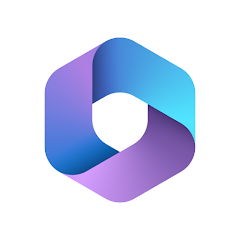Evernote vs. Notion: Which App is Better for Taking Notes?
7th April 2025
Jake Hopkins
In today's fast-paced environment, effective note-taking is crucial for maintaining organization and enhancing productivity. Among the numerous applications available, Evernote and Notion emerge as prominent options, each presenting distinct features designed for note-taking, organization, and collaboration. This guide examines the strengths and weaknesses of both applications, offering a comparative analysis of their functionalities to assist individuals in determining which option may best meet their requirements. Whether one is a student, professional, or creative individual, gaining a comprehensive understanding of these tools can significantly improve the note-taking experience.
Overview and Purpose of Note-taking Apps
Note-taking applications have fundamentally transformed the manner in which individuals and teams organize their thoughts, manage tasks, and enhance productivity within an increasingly digital workspace. Applications such as Evernote and Notion serve a multitude of purposes, including personal organization, project management, and facilitating collaboration in remote work environments.
Equipped with features such as cloud storage, these applications enable users to access their notes from any location, ensuring that essential information is always readily available. The integration of task management tools allows for the efficient tracking of deadlines and deliverables, which is vital in fast-paced settings.
Moreover, note-taking applications promote collaboration by allowing multiple users to share, edit, and comment on documents in real-time, thereby enhancing team communication. This collaborative approach fosters a more engaging user experience, as team members can collectively contribute to and refine ideas.
Ultimately, these applications cater to diverse user preferences and working styles, streamlining workflows and improving overall efficiency through automation and integration with tools.
Features and Functions of Evernote
Evernote is a prominent note-taking application that provides a comprehensive range of features aimed at improving user experience and functionality. Its user interface is designed to be intuitive, enabling users to create and organize notes with ease through rich text editing, multimedia support, and tagging capabilities.
Additionally, Evernote's cloud storage functionalities allow users to access their notes across multiple devices seamlessly, ensuring synchronization and offline availability, crucial for both mobile app and desktop app users.
This section will explore the specific features and functions that position Evernote as an effective tool for personal organization, team collaboration, and collaborative endeavors.
Note-taking, Organization, and Collaboration Features
Evernote demonstrates exceptional capabilities in providing comprehensive note-taking, organization, and collaboration features that address a wide variety of user requirements.
The platform enables users to create notes utilizing templates that facilitate structured content development, thereby promoting effective brainstorming and project management, and supporting personal knowledge management.
With its advanced rich text editing functionalities, users can format notes in various ways, including checklists and annotations, significantly enhancing the overall user experience.
The collaboration tools within the application allow for seamless sharing and editing of notes among team members, ensuring that critical information remains organized and readily accessible.
This dynamic platform give the power tos users to utilize robust tagging systems, simplifying the categorization and retrieval of information.
Furthermore, its advanced search functionality allows users to navigate even the largest note collections with ease, enabling the swift identification of specific content or keywords.
For example, project managers can leverage task management features to monitor deadlines and assign responsibilities, while teams can collaboratively edit shared notes in real-time, fostering a more cohesive work environment through collaborative editing and version history.
Scenarios such as group brainstorming sessions or coordinated event planning illustrate how Evernote’s features enhance productivity and streamline workflows.
Features and Functions of Notion
Notion is a robust productivity tool that integrates notes, tasks, databases, and wikis into a unified digital workspace, rendering it a versatile option for both individuals and teams, supporting file attachments and link embedding.
Its highly customizable user interface allows users to tailor their workflows, incorporating features such as markdown support, kanban boards, and rich text editing, all of which promote effective task management and organization.
This section will examine the comprehensive features and functions of Notion that contribute to its widespread appeal as a collaborative platform, enhancing information management and content creation.
Note-taking, Organization, and Collaboration Features
Notion provides a comprehensive suite of note-taking, organization, and collaboration features that distinguish it within the digital workspace. Its visual hierarchy enables users to structure their notes in a clear and organized manner, facilitating straightforward information retrieval.
Notion's extensive collaboration capabilities allow teams to create shared workspaces in which they can engage in brainstorming, project management, and note-sharing with ease. The integration of mind mapping and advanced search functionalities further enhances its utility for users seeking to optimize their workflow.
By emphasizing visual elements, Notion give the power tos users to convey complex ideas and project workflows intuitively, ensuring that essential information remains readily accessible. The mind mapping feature encourages creative thinking and enhances brainstorming sessions, allowing teams to visualize the relationships between concepts effectively.
Additionally, the platform's collaborative tools, such as real-time editing and commenting, streamline communication, enabling team members to provide immediate feedback and contribute their ideas.
These unique organizational components not only enhance individual productivity but also cultivate a culture of teamwork, facilitating alignment on goals and enabling groups to remain on track, utilizing goal setting and integration with third-party integrations.
Comparison of Evernote and Notion
In comparing Evernote and Notion, several factors must be considered, including features, pricing, and overall user experience.
Both applications serve distinct user needs and present unique functionalities, such as advanced search capabilities and tagging systems. Evernote is particularly strong in straightforward note-taking and robust organizational tools, whereas Notion provides a more customizable digital workspace that encompasses project management capabilities.
This section will assess the strengths and weaknesses of each application, facilitating users in making informed decisions.
Pros and Cons of Each App and Pricing Considerations
Evaluating the advantages and disadvantages of Evernote and Notion provides valuable insights into their performance and user satisfaction. Evernote is recognized for its robust note organization capabilities and strong support for multimedia content; however, it may present limitations in customization compared to Notion. In contrast, Notion is lauded for its flexibility and comprehensive project management features, though users may experience a steeper learning curve. This analysis aims to deliver a balanced perspective based on user reviews and performance metrics.
Both tools present distinct advantages tailored to different user needs. Evernote's user-friendly interface is frequently highlighted as a significant benefit, enabling users to efficiently jot down ideas or save web clippings with ease.
Some users have reported challenges regarding customer support, expressing a desire for more timely responses. Conversely, while Notion's extensive range of template options and integration capabilities earns it high praise for versatility, the complexity of its features may occasionally overwhelm new users.
User testimonials often emphasize the satisfaction achieved once proficiency is attained, highlighting that both applications ultimately aim to enhance productivity and organization, with Evernote's note organization capabilities and Notion's comprehensive project management features.
Which App is Better for Taking Notes?
The determination of which application is superior for note-taking is ultimately contingent upon the specific needs and preferences of the individual user.
Evernote provides a straightforward and efficient platform tailored for users who prioritize detailed note-taking and organization. In contrast, Notion is designed for those who require a versatile workspace that integrates note-taking with project management capabilities.
When selecting between these two applications, it is essential to consider factors such as ease of use, feature set, and specific functionalities. This section will further explore these influential factors.
Factors to Consider and Personal Preference
When selecting between Evernote and Notion for note-taking, it is important to consider several factors based on individual preferences and specific usage scenarios. Key considerations include the effectiveness of each application's organizational system, the ease of onboarding, and the availability of collaboration tools that align with particular objectives.
Understanding how each application integrates with users' workflows and organizational styles, including usability and user adoption, will facilitate a well-informed decision regarding the most suitable note-taking solution.
The design of the user interface significantly impacts how individuals interact with these platforms, as a clean and intuitive layout can enhance productivity and minimize disruptions during tasks, contributing to effective organization strategies and productivity hacks.
Evaluating the onboarding experience is essential, as a seamless introduction to the features and user interface can greatly influence a user's initial impression and willingness to further explore the application. Effective organization and customization options are crucial as well.
Compatibility with existing workflows is also crucial; users' preferences for task lists, reminders, or project management functionalities can determine which application is more appropriate for their needs. Productivity apps like Evernote and Notion offer various features such as note-taking, templates, and collaboration tools that help in enhancing the workflow.
Ultimately, the ideal choice will depend on how effectively either option can adapt to personal working habits and promote sustained user engagement. Factors such as integration with existing tools, cloud storage, syncing capabilities, and data security play significant roles in user satisfaction and overall experience. Cross-platform availability, mobile and desktop app functionalities, and offline access are also important to consider.














